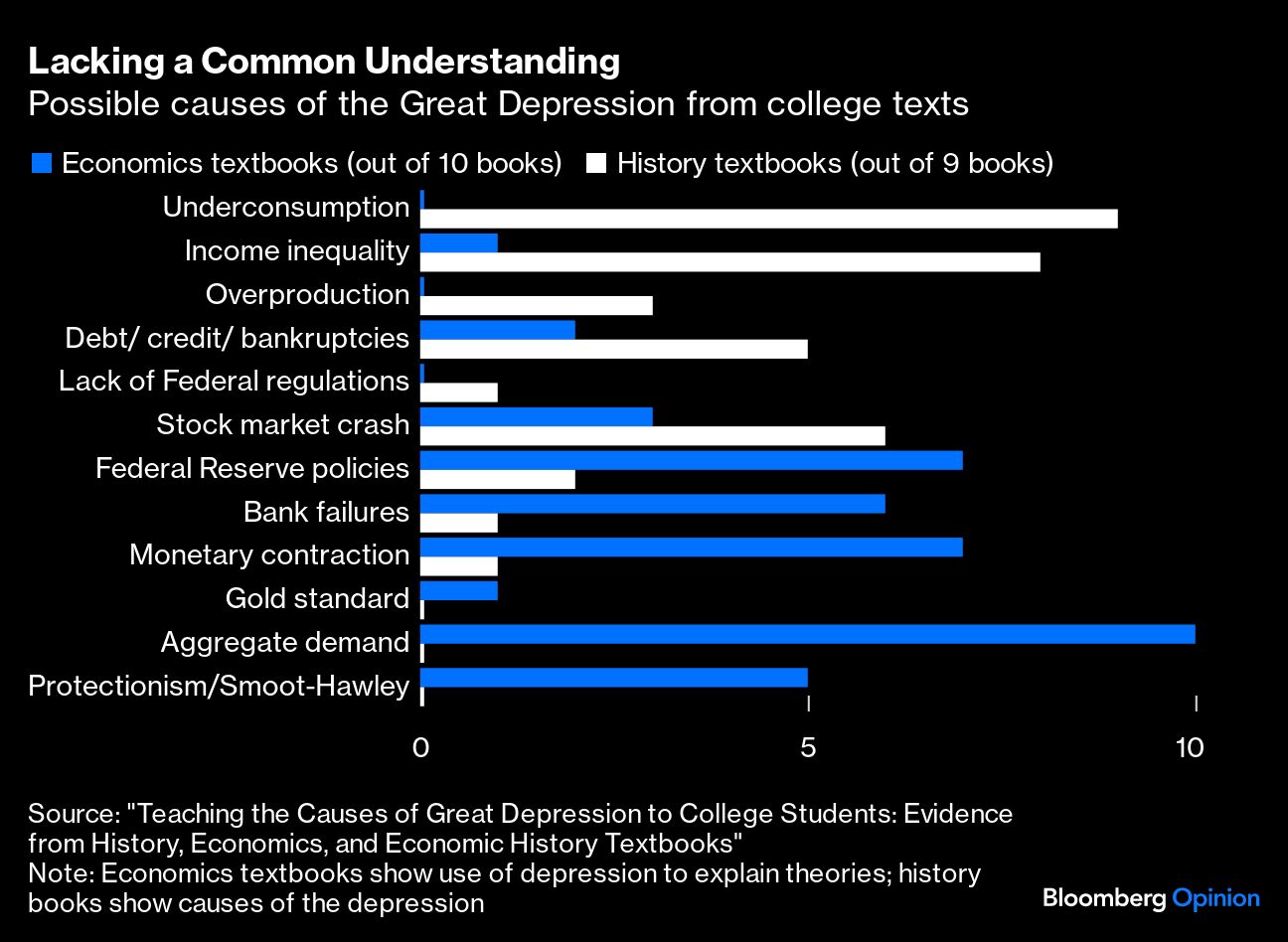The philosopher George Santayana famously wrote, “Those who cannot remember the past are condemned to repeat it,” but also, less famously, “History is a pack of lies about events that never happened told by people who weren't there.”
I was thinking of both quotes as I read a recent paper comparing the wildly different causes given for the Great Depression between college American history and economics textbooks (Jeremy Horpedahl, Phillip Magness, and Marcus Witcher, “Teaching the Causes of Great Depression to College Students: Evidence from History, Economics, and Economic History Textbooks,” Journal of Economics and Finance Education).

This matters because we are undergoing an economic transition that might be comparable in magnitude to the 1930s. The economic consensus that produced the “ Great Moderation” was smashed by the financial crisis in 2008. But unlimited monetary and fiscal stimulus seemed to solve economic problems up to and including pandemic disruptions — mysteriously not bringing the inflation conventional wisdom predicted. Inflation returned in 2022 in a painful way and, although it appears to be under control now, few are confident we understand it.
Moreover, Covid accelerated the deadline for long-standing fiscal and demographic challenges faced by the US and other developed democracies. In its wake, some want more spending, others want deficit reduction and entitlement reform; some want freer trade and more immigration, others want both restricted; some pin their hopes on crypto and other innovations, others want them blocked. This makes it a good time for educated people to have a clear grasp of economic history — something that’s in question as Horpedahl et al. illustrate.
The accompanying graphic, drawn from their article, shows that American history textbooks cite mostly causes with no support from academic economists, who in turn promote theories nearly absent from the history texts.
By itself that is not a problem; no doubt every page of a history text contains material disputed by some reasonable authorities. It’s the nature of the history textbook explanations that concerns me. They are all conventional wisdom of people at the time that are not merely wrong, they’re not coherent or logical theories, and have no empirical support.
Imagine if the treatment of the Vietnam War trusted only the speeches of US politicians of the time. The war would be described as an external aggression undertaken by agents of a monolithic Communist conspiracy bent on global domination in which Vietnam was merely one domino; and an effort in which the US achieved its goal of peace with honor, leaving the people of South Vietnam free to choose their own government. There is no coherent arrangement of facts that supports this story.
Getting back to the Great Depression, it’s not wrong in principle to cite underconsumption as one of the causes. But an economist will ask why people failed to consume. If they didn’t have enough money, or prices were too high, why didn’t they get more money and why didn’t prices fall?
Economists also want evidence. Did underconsumption precede the depression it is alleged to have caused? Did places with less underconsumption have milder and shorter depressions? None of the history books appear to address these kinds of questions about any of their alleged causes.








